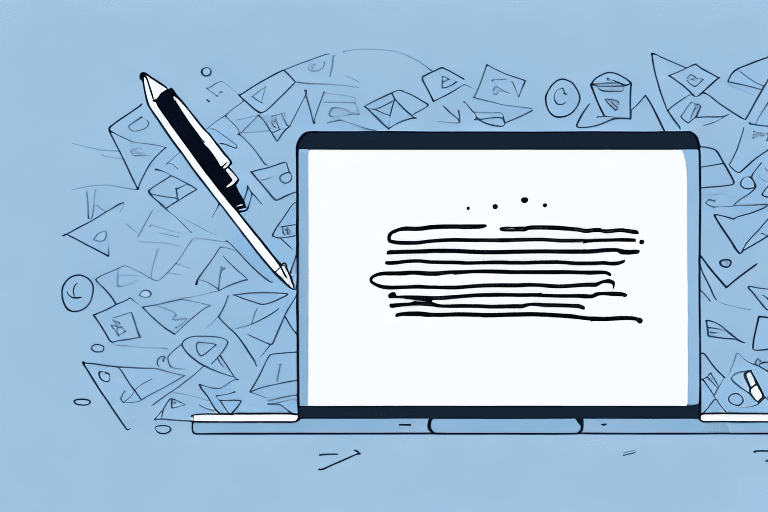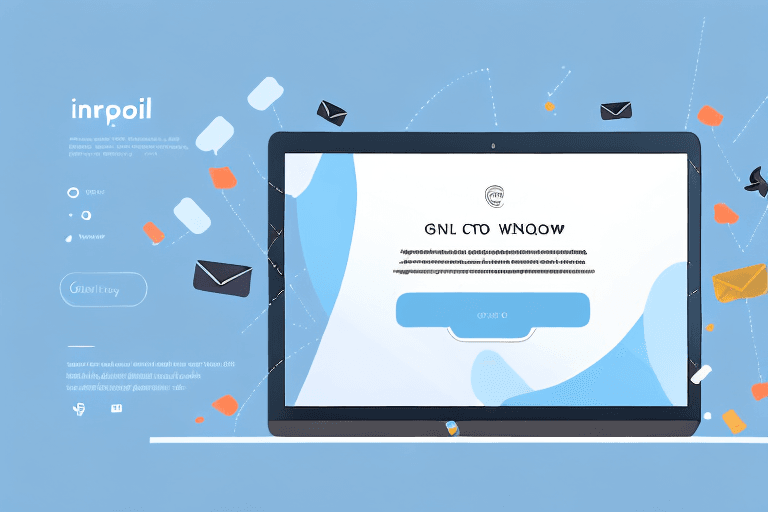If you’re planning to resign from your job, it’s important to do so in a professional and courteous manner. One way to ensure that you leave on good terms with your employer is to provide a resignation letter. While there are many ways to write a resignation letter, this article will provide you with a comprehensive email template that you can use as a guide.
Understanding the Importance of a Resignation Letter
Before we dive into the specifics of the email template, it’s important to understand the importance of a resignation letter. The purpose of a resignation letter is to formally notify your employer of your intention to leave the company. It’s also an opportunity for you to leave on good terms and maintain a positive relationship with your employer.
Leaving on good terms
By providing a resignation letter, you’re demonstrating your professionalism and commitment to the company. This can go a long way in maintaining a positive relationship with your employer, which can be beneficial in the future.
Leaving on good terms can be especially important if you work in a small industry or community. You never know when you might cross paths with your former employer or colleagues again. By leaving on a positive note, you’re increasing the chances of future opportunities and collaborations.
Professionalism and courtesy
It’s also important to remember that your resignation letter reflects your professionalism and courtesy. Even if you’re leaving the company because of negative circumstances, it’s important to remain respectful and avoid burning bridges.
One way to maintain professionalism is to thank your employer for the opportunities and experiences you gained while working for the company. You can also offer to assist with the transition process or provide recommendations for your replacement.
Legal and HR requirements
Finally, in some cases, providing a resignation letter may be a legal or HR requirement. Make sure to check your company’s policies and procedures to ensure that you’re following the correct protocol.
In addition to a resignation letter, you may also be required to participate in an exit interview. This is an opportunity for you to provide feedback on your experience with the company and offer suggestions for improvement. Remember to remain professional and constructive during the interview.
Overall, a resignation letter is an important part of the departure process. It allows you to leave on good terms, demonstrate professionalism and courtesy, and fulfill legal and HR requirements. By taking the time to craft a thoughtful and respectful resignation letter, you’re setting yourself up for success in future endeavors.
Essential Components of a Resignation Letter
Resigning from a job can be a difficult decision, but it’s important to do it professionally and with grace. One of the key steps in this process is writing a resignation letter. This letter is a formal way to inform your employer that you’ll be leaving your position, and it’s important to include certain key components to make sure your resignation is clear and professional.
Statement of resignation
The first and most important component of your resignation letter is a clear statement of your intention to resign. This should be the first paragraph of your letter, and it should clearly state that you’re resigning from your position. Be sure to include the date that your resignation will be effective, so your employer knows when your last day of work will be.
Effective date of resignation
In addition to stating that you’re resigning, it’s important to provide your employer with adequate notice of your resignation. This gives them time to make arrangements for your departure and to find a replacement if necessary. Typically, you should aim to provide at least two weeks’ notice. In your letter, include the specific date that your resignation will be effective.
Reason for leaving (optional)
While you’re not required to provide a reason for leaving, it can be helpful for your employer to understand why you’re resigning. If you’re leaving for a positive reason, such as to pursue a new opportunity or to relocate, feel free to share that information. However, if your reason for leaving is negative, such as because of conflicts with coworkers or dissatisfaction with the job, it’s important to be diplomatic and avoid any negative language.
Expressing gratitude
In the body of your letter, take the time to express your gratitude to your employer and colleagues. Thank them for the opportunities they’ve given you and the support they’ve provided during your time with the company. This can be a great way to maintain a positive relationship with your employer and leave on good terms.
Offer of assistance during the transition
Finally, be sure to offer your assistance during the transition period. This can be a great way to demonstrate your professionalism and ensure that the company remains successful after your departure. Let your employer know that you’re willing to help with the transition in any way you can, whether that’s training a replacement or finishing up any outstanding projects.
By including these key components in your resignation letter, you can ensure that your departure is handled professionally and respectfully. Remember, the way you leave a job can have a lasting impact on your professional reputation, so it’s important to take the time to do it right.
Tips for Writing a Professional Resignation Letter
Resigning from a job can be a difficult and stressful experience, but it’s important to do it professionally and respectfully. One of the most important parts of resigning is writing a resignation letter. This letter serves as a formal notification to your employer that you will be leaving your position and outlines the details of your departure.
Now that you understand the essential components of a resignation letter, let’s look at some tips for writing a professional and effective email:
Keep it concise
Your email should be concise and to the point. Avoid lengthy explanations or unnecessary details. Instead, focus on the essential components and keep your email brief. Remember, this is a professional communication, not a personal one.
For example, you might start your email with a brief statement such as, “I am writing to inform you that I have decided to resign from my position as [job title] effective [date].” From there, you can provide any additional details that are necessary, such as your reason for leaving or any outstanding projects that need to be completed before your departure.
Use a polite and respectful tone
Throughout your email, be sure to use a polite and respectful tone. Avoid any negative language or criticism of the company or your colleagues. Remember, you never know when you may cross paths with these individuals again in your professional career, so it’s important to maintain positive relationships.
For example, you might express your gratitude for the opportunities that the company has provided you with, and highlight some of the positive experiences you’ve had during your time there. You might also offer to assist with the transition process in any way you can, to ensure a smooth departure for both yourself and the company.
Proofread and edit
Finally, before you hit send, make sure to proofread and edit your email. Check for any spelling or grammatical errors and ensure that your email is professional and error-free. This is your chance to make a lasting impression on your employer, so take the time to make sure your email is polished and well-written.
In conclusion, resigning from a job can be a challenging experience, but by following these tips for writing a professional resignation letter, you can ensure that your departure is handled with grace and professionalism.
The Resignation Email Template
Resigning from a job can be a difficult decision, but it’s important to do it with grace and professionalism. Writing a resignation email can be challenging, as you want to convey your gratitude towards your employer while also expressing your desire to move on. With these tips in mind, let’s take a look at the comprehensive resignation email template:
Subject line
The subject line of your resignation email should be clear and straightforward. It should include your name and the fact that you are resigning from the company. For example:
[Your Name] – Resignation from [Company Name]
Salutation
The salutation of your resignation email should be addressed to your direct manager. It should be polite and professional. For example:
Dear [Manager’s Name],
Body of the email
The body of your resignation email should be clear and concise. You should state your intention to resign from your position, your last day of work, and express your gratitude towards your employer and colleagues. For example:
I am writing to formally notify you of my resignation from my position as [Your Job Title] at [Company Name]. My last day of work will be [Effective Date of Resignation].
While I have enjoyed my time at [Company Name], I have decided to move on to other opportunities. I want to express my gratitude to you and the entire team for the support and guidance that you have provided me during my time here.
Please let me know how I can assist during the transition period to ensure that the company remains successful. I would be happy to help in any way that I can.
Thank you again for the opportunities that you have provided me during my time here. I wish you and the entire team all the best in the future.
Closing and signature
The closing of your resignation email should be polite and professional. It should include your best regards and your name. For example:
Best regards,
[Your Name]
Remember, resigning from a job can be a difficult decision, but it’s important to do it with grace and professionalism. By following this comprehensive resignation email template, you can ensure that you leave on good terms and maintain a positive relationship with your employer. Remember to be professional, polite, and respectful throughout the email, and offer your assistance during the transition period to demonstrate your commitment to the company’s success.




